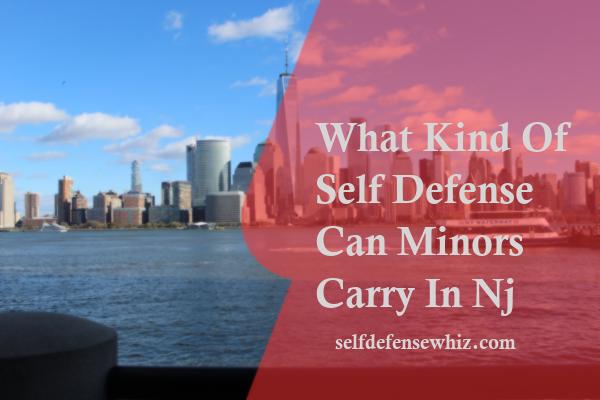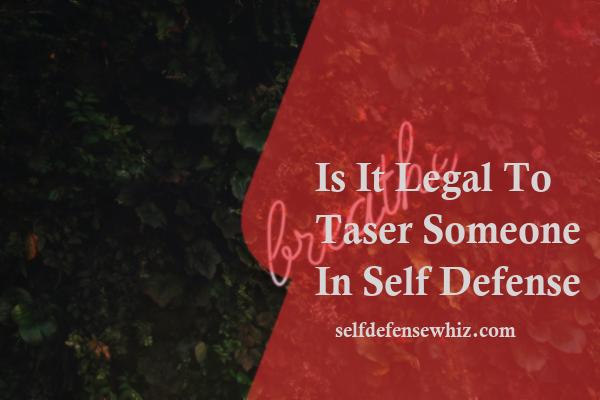When Is It Legal To Hit Someone In Self Defense
Self-defense is a fundamental right that allows individuals to protect themselves from harm and maintain personal safety. While violence should never be the go-to solution to resolve conflicts, there are instances where the use of force becomes necessary for one’s protection. So, when is it legal to hit someone in self-defense? **The short answer is that it is generally permissible to use physical force in self-defense when there is an immediate threat of harm or when it is reasonable to believe that such force is necessary to prevent an attack.** However, the specifics and legal nuances surrounding self-defense vary across jurisdictions, making it crucial to explore the topic in greater depth to fully understand its complexities.
When Is It Legal To Hit Someone In Self Defense
Self-defense is a fundamental right that allows a person to protect themselves from harm or danger. While laws may vary across jurisdictions, there are generally some key principles that determine when it is legally permissible to hit someone in self-defense.
In most cases, the use of force in self-defense must meet certain criteria to be considered legal:
- Imminent threat: The person using self-defense must reasonably believe that they are facing an immediate threat of harm or violence. This threat must be real and present, rather than speculative or hypothetical.
- Proportional response: The force used in self-defense should be proportionate to the threat faced. It means that using force that is necessary and no more to repel the threat. For instance, if someone merely insults or pushes you, responding with a deadly blow would likely be considered excessive force.
- Absence of alternatives: Self-defense must be a last resort. If there is a reasonable opportunity to escape the situation or seek help, it may be necessary to do so rather than resorting to violence.
However, it is important to note that the specific details and circumstances surrounding a self-defense case can greatly impact the legal outcome. The interpretation of self-defense laws may differ based on factors such as location, the individual’s perception of the threat, and any prior history between the parties involved. It is advisable to consult local laws and regulations, as well as seek legal advice if necessary.
Pro-Tip: Understanding the self-defense laws in your jurisdiction is crucial to ensure you act within the boundaries of the law. If you find yourself in a situation where self-defense may be necessary:
- Stay calm and assess the level of threat accurately.
- Try to remove yourself from the situation or seek help if possible.
- If physical force becomes necessary, aim to use the minimum amount required to protect yourself.
- Remember to cooperate with law enforcement and seek legal representation as soon as possible.
What Constitutes Self-Defense In The Eyes Of The Law?
Self-defense is a fundamental right that allows individuals to protect themselves from harm or imminent danger. However, the legality of hitting someone in self-defense depends on several factors, including the specific laws of the jurisdiction and the circumstances surrounding the situation. In general, self-defense is deemed justified when the force used is reasonable and proportionate to the threat faced.
In most jurisdictions, an individual may use physical force to defend themselves if they believe they are in immediate danger of being harmed. This means that if someone is attacked or feels threatened with violence, they can respond with force to protect themselves. However, it is important to note that the level of force used must be reasonable given the circumstances. For instance, hitting someone with a closed fist might be considered reasonable if it is necessary to immobilize an assailant, but using excessive force when the threat has already subsided could be seen as an act of aggression rather than self-defense.
Moreover, the concept of a “duty to retreat” may also influence the legality of hitting someone in self-defense. Some jurisdictions require individuals to first attempt to retreat or escape from a dangerous situation before resorting to physical force. However, other jurisdictions recognize the right to stand your ground, meaning individuals are not obliged to retreat in the face of danger and can use proportional force to defend themselves even if a safe escape is possible.
In conclusion, the legality of hitting someone in self-defense hinges on the reasonable belief of immediate harm or danger, the proportional use of force, and the specific laws of the jurisdiction. It is crucial to understand the laws and regulations surrounding self-defense in your area to ensure that you act within the boundaries of the law when confronted with a threat to your safety.
Is There A Duty To Retreat In Self-Defense Cases?
In many jurisdictions around the world, laws allow individuals to use force, including physical force, in situations of self-defense. However, the exact circumstances under which it is legal to hit someone in self-defense can vary greatly depending on the specific laws of a particular country or state. Typically, the use of force in self-defense must align with three key principles: necessity, proportionality, and immediacy.
Firstly, the principle of necessity implies that the person must reasonably believe that using force is necessary to protect themselves from imminent harm. This means that hitting someone in self-defense is generally seen as a last resort when no other reasonable option is available. In other words, individuals should strive to retreat or escape from a dangerous situation, if possible, rather than resorting to violence.
Secondly, the principle of proportionality dictates that the force used in self-defense must be reasonable and proportionate to the threat faced. This means that hitting someone in self-defense is typically considered acceptable only if it is a necessary means to protect oneself from harm. The level of force used should not exceed what is needed to defend oneself—it should be reasonable and not excessive.
Lastly, the principle of immediacy means that the threat or danger being faced must be immediate and present. This suggests that hitting someone in self-defense is only justifiable if it is done in response to an ongoing threat or aggression. If the threat has already ceased or if there is no immediate danger, it is generally not considered legal or acceptable to use force in self-defense.
Can The Use Of Force Be Justified If There Is An Imminent Threat Of Harm?
In most legal systems, self-defense is recognized as a legitimate justification for the use of force against another person. However, the circumstances under which it is legal to hit someone in self-defense can vary depending on the jurisdiction. Generally, self-defense is justified when it is necessary to protect oneself or others from immediate and unlawful physical harm.
For an act of self-defense to be considered legal, several key elements are typically examined. Firstly, there must be an imminent threat or danger that the defender reasonably believed to be real and immediate. The force used in response to the threat must also be proportionate to the level of danger presented. This means that the defender cannot react with excessive force that goes beyond what is necessary to neutralize the threat.
Furthermore, the defender must have a genuine and reasonable belief that they are in danger. This subjective belief is usually evaluated based on the facts and circumstances known to the defender at the time, rather than relying on hindsight. It is also important to note that self-defense generally requires an element of immediacy, meaning that it may not be considered valid if the threat has already passed or if the individual has had sufficient opportunity to retreat to safety.
What Are The Legal Consequences Of Injuring Someone In Self-Defense?
Self-defense is a legal concept that permits an individual to use force, including physical violence, to protect oneself from an imminent threat of harm or danger. In general, it is legally acceptable to hit someone in self-defense when the following conditions are met:
First and foremost, there must be a genuine belief that physical harm or injury is about to occur. This means that the threat must be immediate and serious, such as an attack or an assault. The belief must also be reasonable and objectively justifiable, meaning a reasonable person in the same situation would react in a similar manner.
Secondly, the force used in self-defense must be proportionate and necessary to counteract the threat. This means that the person defending themselves should use only the minimum amount of force required to protect themselves or others. If a lesser amount of force could have achieved the same result, the use of excessive force may not be considered legally justifiable.
Lastly, it is crucial that there is no possibility of safely retreating or escaping the situation. In many jurisdictions, a person may only resort to self-defense if there is no reasonable opportunity to avoid the conflict or withdraw from it safely. However, laws regarding the duty to retreat may vary depending on the jurisdiction, as some states or countries have implemented “stand your ground” laws which remove the obligation to retreat in certain circumstances.
Does The Right To Self-Defense Apply In Different Situations And Locations?
In general, the use of force in self-defense is permitted and legally justifiable when an individual reasonably believes they are in immediate danger of physical harm or death. The specific circumstances and laws regarding self-defense can vary by jurisdiction, but the underlying principle remains consistent. The person claiming self-defense must reasonably believe that the force used is necessary to protect themselves from harm.
One key factor that courts consider when determining whether the use of force was justified in self-defense is proportionality. The level of force used should be commensurate with the threat faced. For instance, if someone is being attacked with fists, responding with lethal force such as using a weapon might not be considered justifiable self-defense. However, in cases where the person reasonably believes their life is at risk or facing severe bodily harm, they may be justified in using deadly force.
It is important to note that self-defense laws typically require individuals to have exhausted all other reasonable options before resorting to force. This means that if a person has the opportunity to escape or remove themselves from a threatening situation, they are generally expected to do so. Additionally, the use of force in self-defense generally ceases to be justifiable once the threat has ended. Continuing to use force after the threat has subsided can potentially lead to legal consequences.
Conclusion
In conclusion, when it comes to the legality of hitting someone in self-defense, it is crucial to understand that laws may vary depending on the jurisdiction. Generally, self-defense laws allow individuals to use reasonable force to fend off an imminent threat or danger to themselves or others. However, it is important to note that self-defense should be proportionate to the threat faced, avoiding excessive force that could potentially cause serious harm or death. Legal precedent often places an emphasis on demonstrating a genuine belief that physical harm was imminent and that hitting the aggressor was the only option available to protect oneself. Ultimately, seeking legal advice and familiarizing oneself with specific jurisdictional laws is essential in understanding the conditions under which hitting another person in self-defense can be legally justified.







